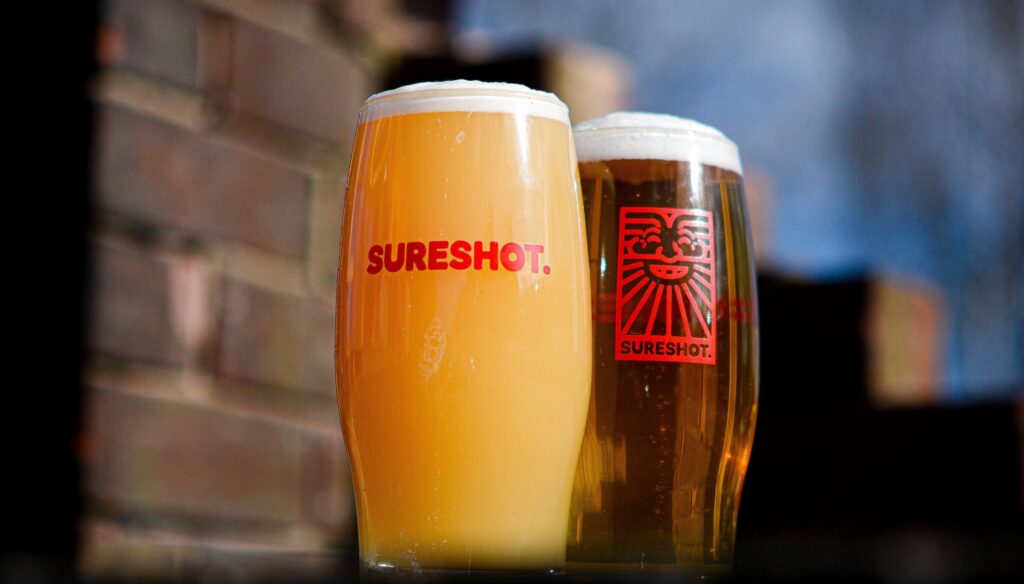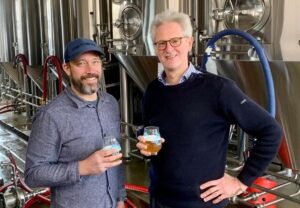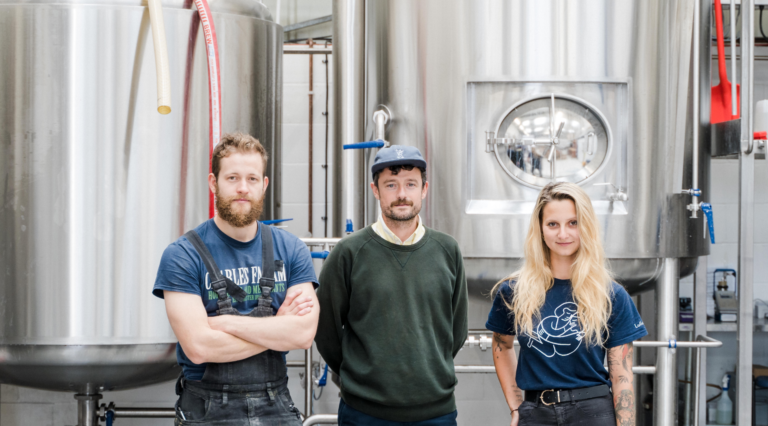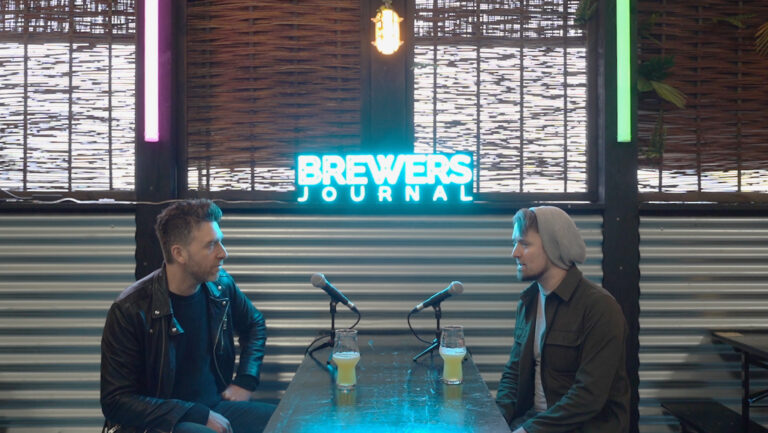Founded in 2020 but a long time in the making, Sureshot was born out of lockdown. The Manchester-based business, headed up by a brewer that can make leading hop-forward beers in his sleep, is determined to make its mark with an excellent, high-quality product. And a mere four months on since their first solo brew, they’re doing just that.
“One of the good things about being ancient is that you’ve got a lot of experience. That’s really the long and short of it for me,” smiles James Campbell. If there’s one thing that can act in equal balance to Campbell’s brewing ability, it is his knack for self deprecation.
“I’ve seen a lot of different sides to this industry,” he adds. “I started out making cask beer in the 1990s so as you can imagine, both the brewing industry and licensed trade has changed a lot in that time.”
Campbell, for those that don’t know, has been a driving force in breweries such as Marble Beers and, for the first four years of its journey, fellow Manchester business Cloudwater. With that, he’s something of a pioneer in bringing new world beer styles and hops to the UK. As a result, Campbell has been instrumental in the development of a new wave of British brewing over the last decade.
That brewing ability also played an integral part in helping introduce Cloudwater to the global stage. But come September 2018, the then head brewer decided to set out on a new path with the goal of opening a brewery of his own.
To help achieve this, he took on the role of commissioning brewer at SSV Limited. A Leeds-based business that designs, supplies and installs brewhouses, process tanks and all other liquid production vessels.
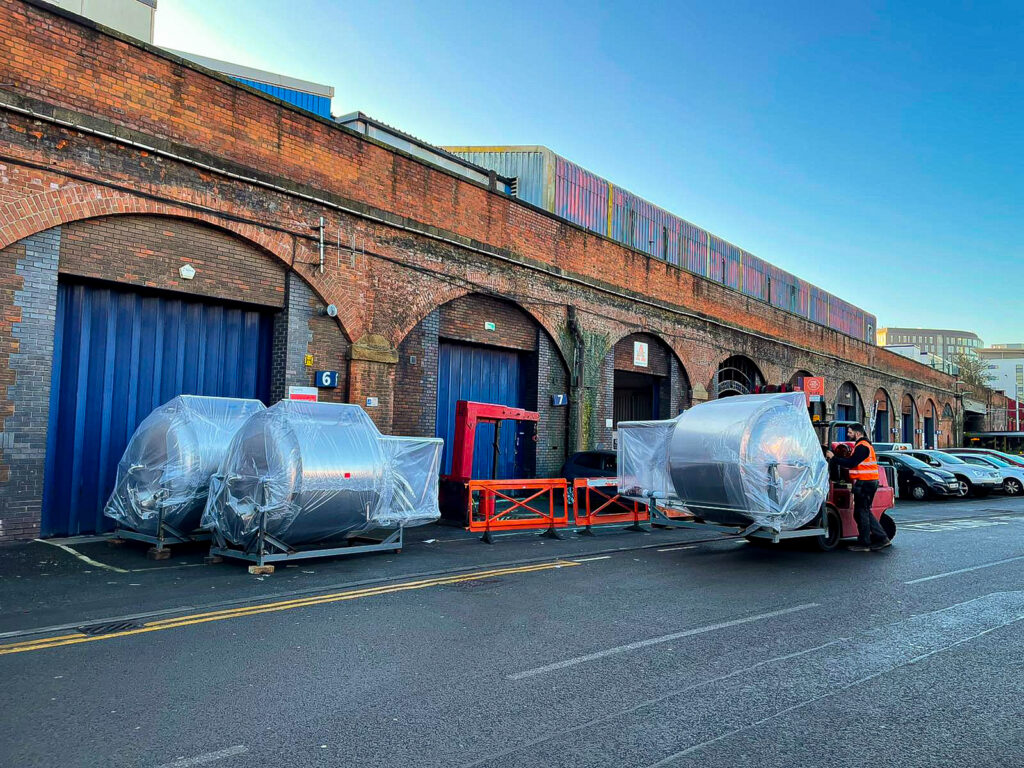
“It was a long-term ambition of mine to run a brewery of my own and working with SSV was part of the plan to get there,” he says. “They are a great company, provide great kit and that’s also why we have their FVs!”
Upon leaving Cloudwater in 2018, Campbell would begin the process of planning the business and seeking investment in earnest. And a chance meeting with Michael Forde, part of the management team at UK premium wine & spirits supplier Kingsland Drinks, would help accelerate those plans.
“I had already met Michael at (venerable Manchester beer festival) IndyManBeerCon. We had a drink and got chatting,” he recalls. “After leaving the brewery, I would then bump into him at Cloudwater’s own beer event and we took it from there.”
And with that Sureshot was born.
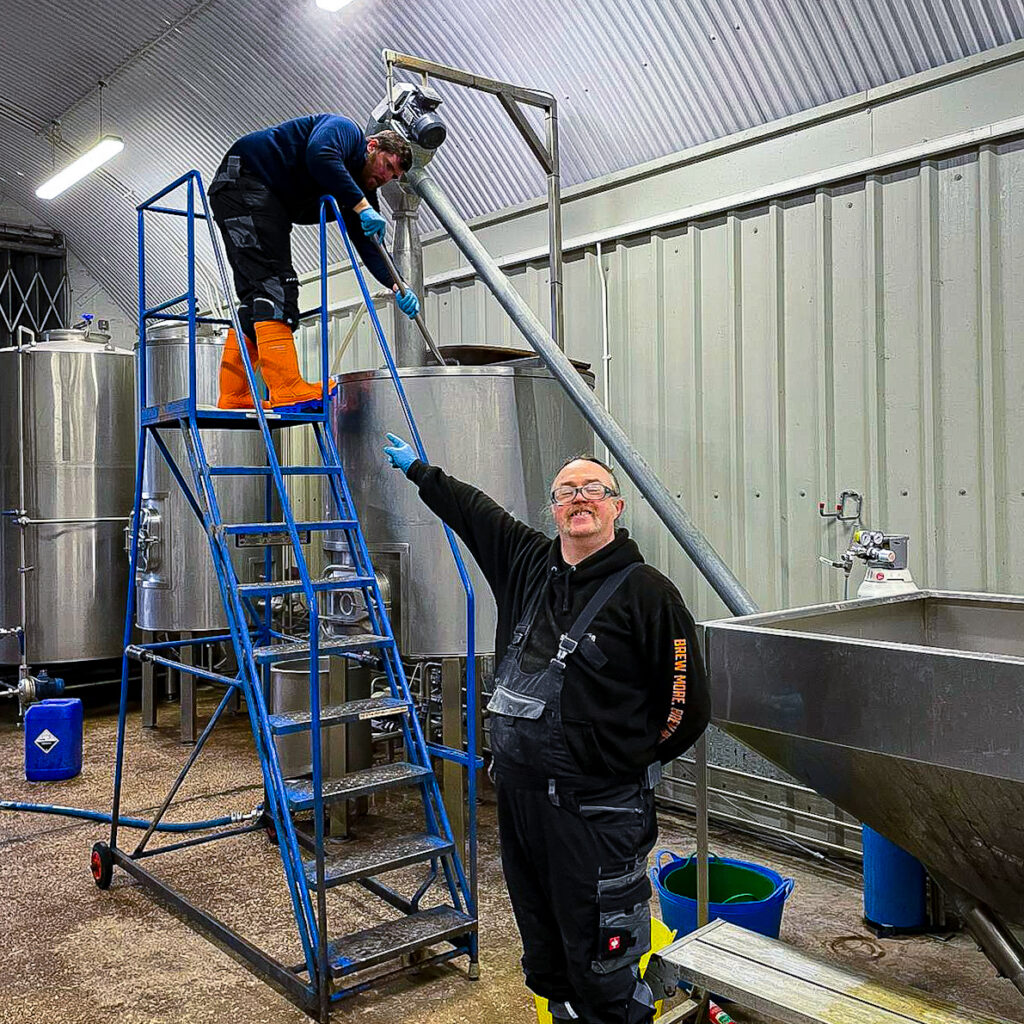
The conversations would continue, the numbers would be crunched and it was demonstrated that this brewery could be a viable business. “We wanted to take our time with it,” Campbell adds.
He explains: “We convinced ourselves on paper or on spreadsheet, should I say, that this was something we could make work. So we started looking for a premises.
“The initial plan was to do something probably a little more opulent and bigger to start with. But the pandemic, combined with all the other issues that have been attending this country for the last few years, has shaken a lot of confidence in investment. It is quite hard to come by without giving away a large chunk of your soul.”
They would come to the conclusion to opt for something slightly more modest than those initial grand plans, and it would just so happen that another Manchester brewery was making moves of its own at the same time.
“I found myself talking to Sam (Dyson, founder of Manchester-based Track Brewing Co) who I know very well. He explained that they were planning to move to larger premises so I obviously enquired what was happening to their older site and kit,” says Campbell.
He adds: “We worked out the numbers, and agreed this was something that would work for us. It’s a solid plant, rather than state of the art, but it has made some great beer over the years and made a lot more sense to opt for this when starting out.”
The team would get the keys to their maiden premises on the 24th January of this year and, no time like the present, would also stick a brew through that day. That beer would be ‘How Much Does Water Weigh’, a 4.2% Pale Ale hopped with Centennial, Galaxy & Citra.
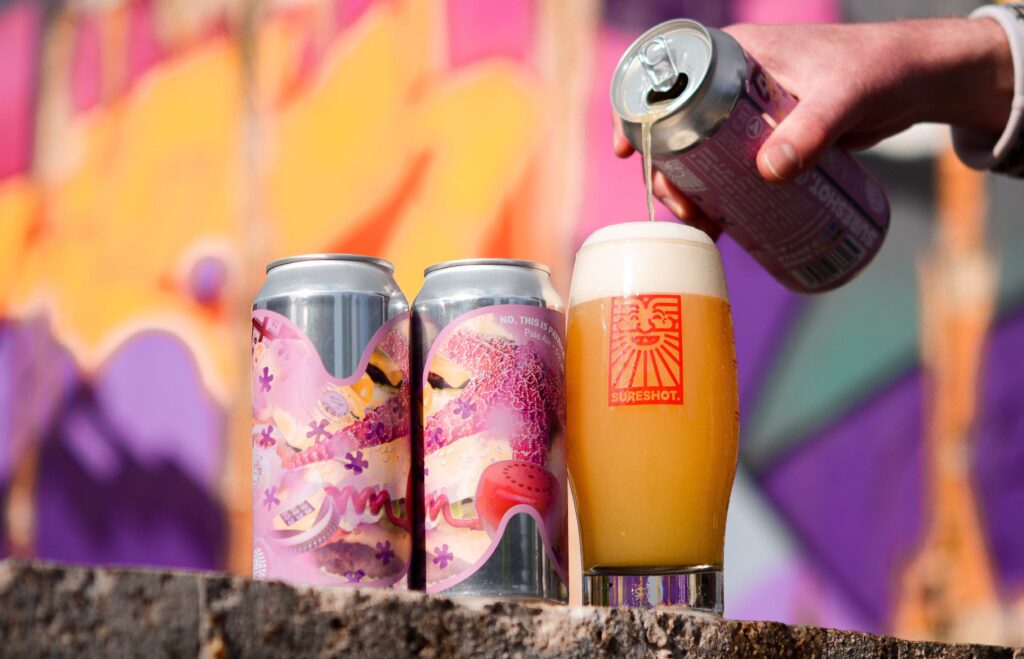
“We had a lot of kit on the water, and knew costs would start to mount with the various storage costs and the like. So it made sense to get things moving as quickly as possible,” he explains.
Several months on, the Sureshot team comprises James Campbell, his business partner Michael Forde, James Leaver, Sean Forde who runs the brewery floor, Connor Seagrave, James Moffat and also Andy Bauckham. While Leaver and Forde previously worked at London Beer Factory Seagrave and Moffat held positions at Cloudwater.
Finally, Bauckham has previously worked at Port Street Beer House and Beatnik Republic.
“There are high static costs associated with running a brewery, especially one close to the city centre. So you need many sets of hands to help get everything moving,” says Campbell. “Double brewing, running a canning line, packaging and selling beer is clearly not something one person can sustainably do.”




With kit, premises, and a great team in tow, all that’s left is for Campbell and Sureshot to work their magic with the liquid itself. And early beers, perhaps unsurprisingly, have many of the hallmarks you’d expect from such a storied brewer.
“We want to make good quality beer. I firmly believe there is always a market for a high quality product. I also believe that competing on price when you’re a small brewer is not a particularly sensible idea,” he explains. “We don’t have the means to produce in bulk so we’ll produce what we can, as best we can. Hop-forward beers are also the styles I know I’m good at making, and I know that we can sell.”
He adds: “I don’t think we should be shy about the faith we have in ourselves. Yes, there is competition for the same share of throat that similar breweries have. But I also still think that craft beer, for want of a better term, is expanding. More and more people are drinking that kind of beer and it’s not as niche as it was.
“I think there’s every reason to believe that as long as we keep hitting those quality levels, get our communications right, and get our product delivery on point then there is room for us.”
“I firmly believe there is always a market for a high quality product,”
James Campbell, Sureshot
For Campbell, another aim for Sureshot is constant improvement. “We want to get better over time as we hopefully establish ourselves. We have more fermentation capacity on the way so for a business like ours, the ability to produce more beer will help the numbers make more sense and it’ll also help us build our reputation, too.”
And when that happens, the head brewer is not ruling out branching out into other beer styles. “I think there is room for all kinds of styles but I am also a firm believer in keeping things fairly simple as far as yeast goes. I don’t want something like 17 different yeast strains in the brewery because that will just lead to trouble sooner or later.”
But until then, consumers can try beers such as Double IPA ‘164 Miles Per Hour’, New England IPA ‘I Need A Rendezvous’ and West Coast IPA ‘Name A Yellow Fruit’. Releases that have already enjoyed UK distribution thanks to the brewery’s in-house canning capabilities.
“The notion of Sureshot was born and developed under lockdown, and I think we quickly came to the conclusion that launching without a small pack facility was verging on madness really,” he says.
“Go back a year or so and nobody really knew what was happening with the licensed trade. And I still think the licensed trade doesn’t quite know where things will be in six months’ time. Be that either due to the impact of lockdown or the impact that has had on long-term finances. So for us, with that in mind, the ability to go direct to the consumer was essential.”
Campbell goes on: “In addition, from my own experience, I also think small pack is some of the best marketing you can have. People will take a chance on a can of beer long before a publican will take a chance on a keg of it.”

James Leaver, the brewery’s marketing/graphics/social media manager, adds that small pack is incredibly effective in opening up the broader beer market. “We’re not a big country, cans travel pretty well and help people hear about you from any corner. So I do think that it’s an ambition to ultimately be up and down the country, and to be able to supply businesses that want our beer.”
And another route the brewery plans to take when connecting with the consumer is through the opening of its own taproom, which will be housed in the adjacent unit to the brewhouse. The imminent arrival of additional fermenters will result in malt and other storage moving to the back of the second unit, with a shiny new taproom and retail operation adorning the front.
“Firstly it makes sense to help offset the additional costs presented by the extra unit but equally, it gives us a great opportunity for people to get to know the brand better. It gives us more of a personality,” says Campbell.
“As a small start-up, it’s fantastic when people ask where they can enjoy your beer. So instead of simply having to respond with “all good pubs and bars”, we can have somewhere to welcome people to try our beer, and to come along on this journey with us. We’re excited by it all.”

